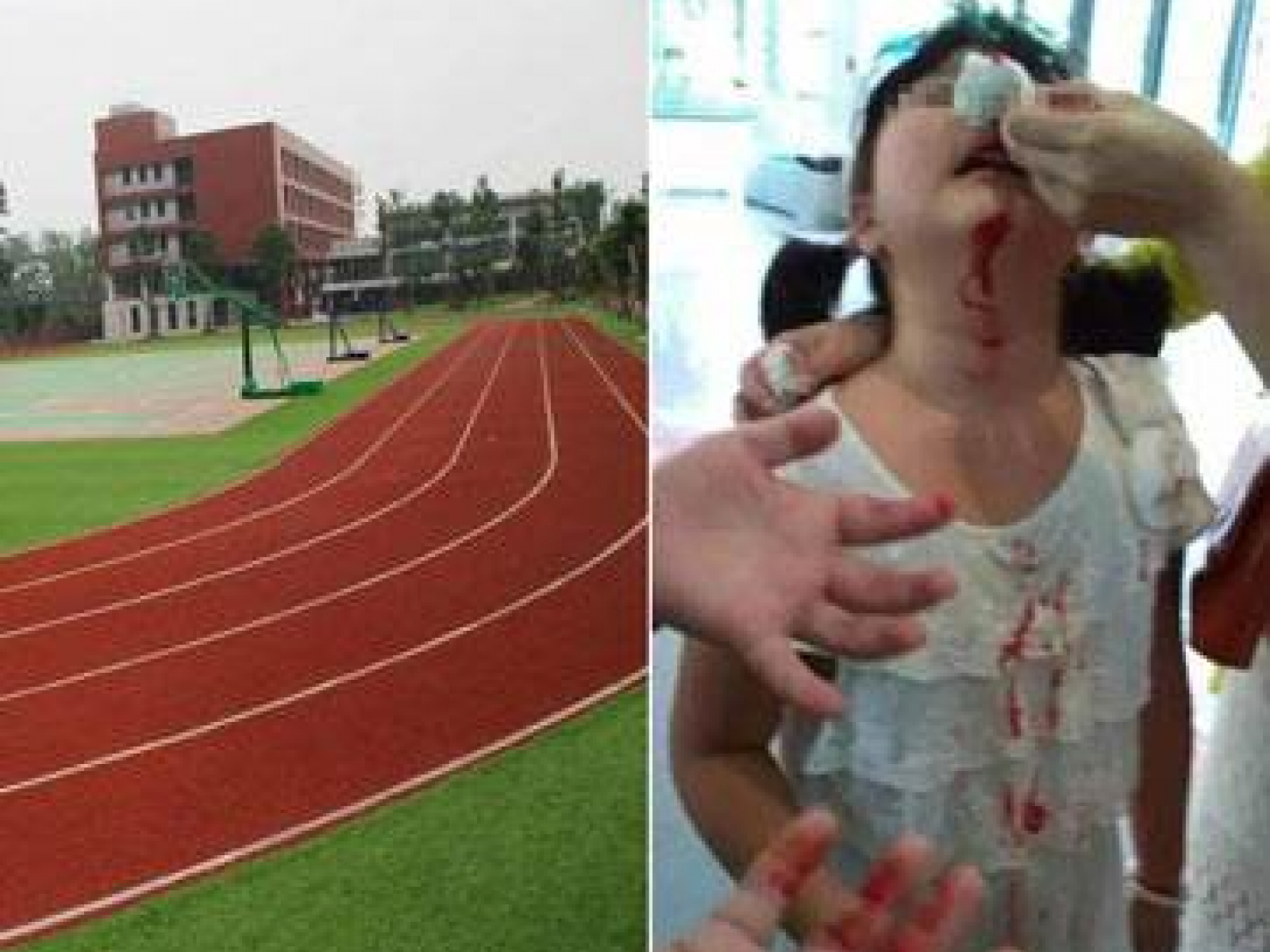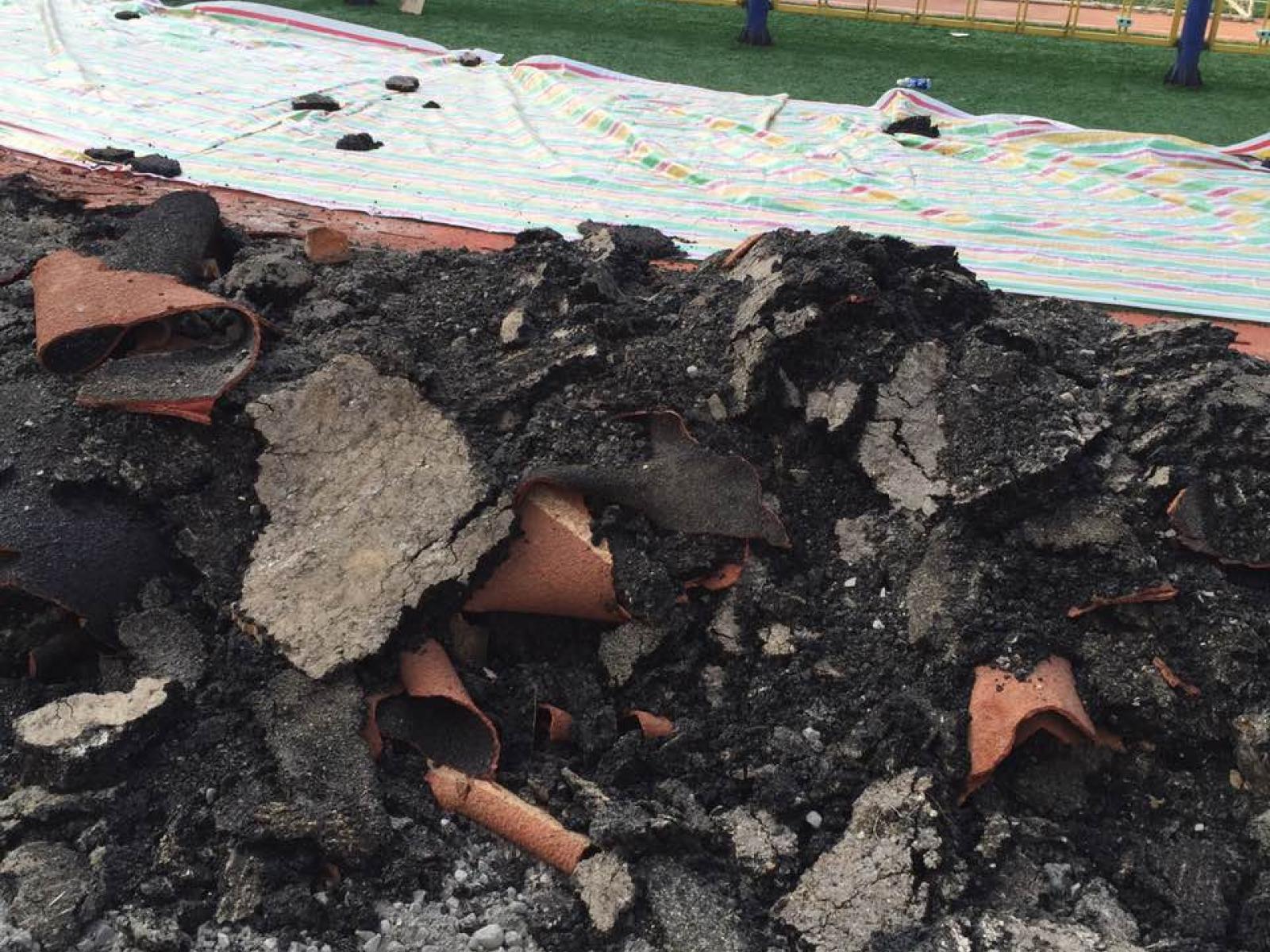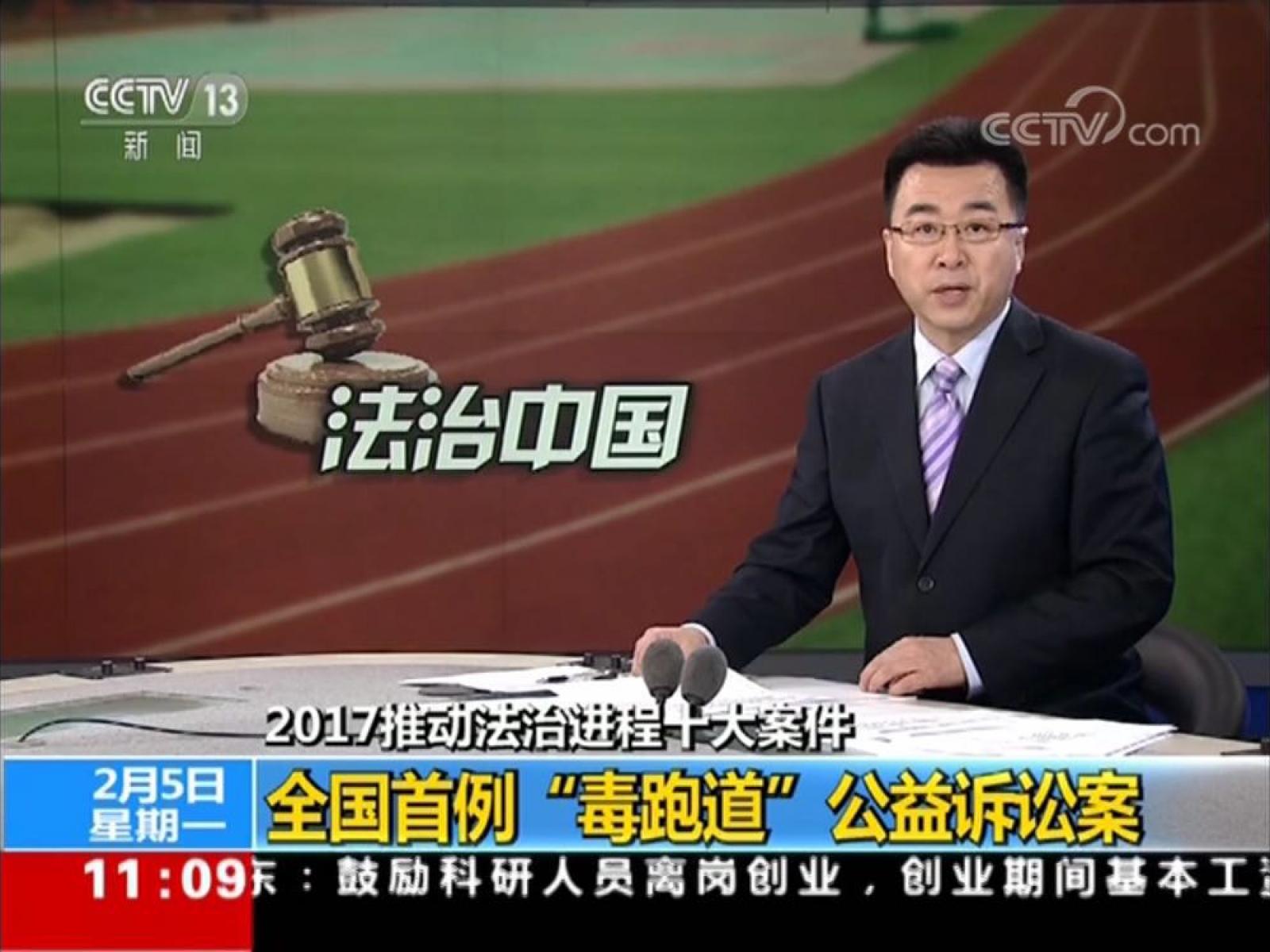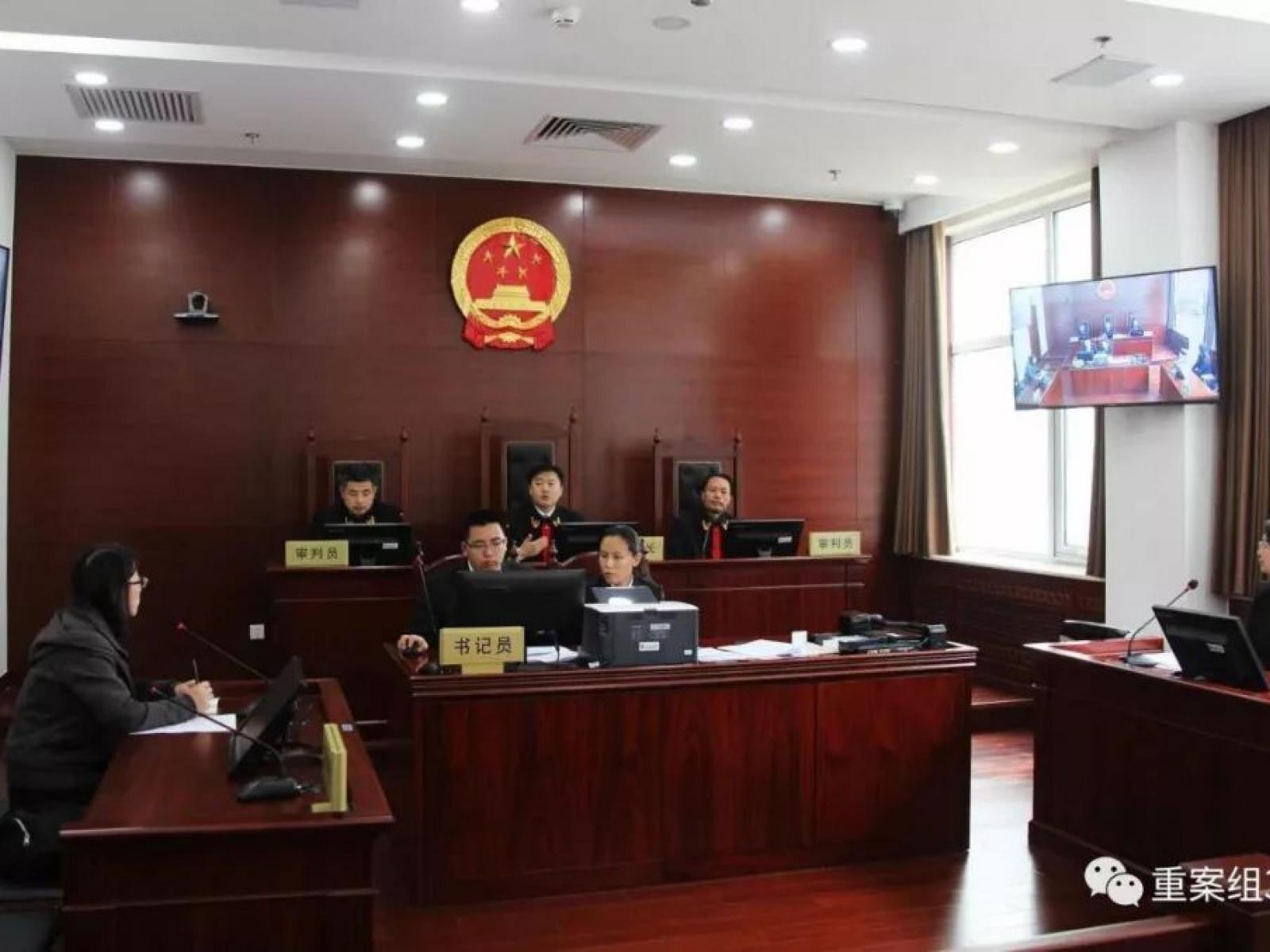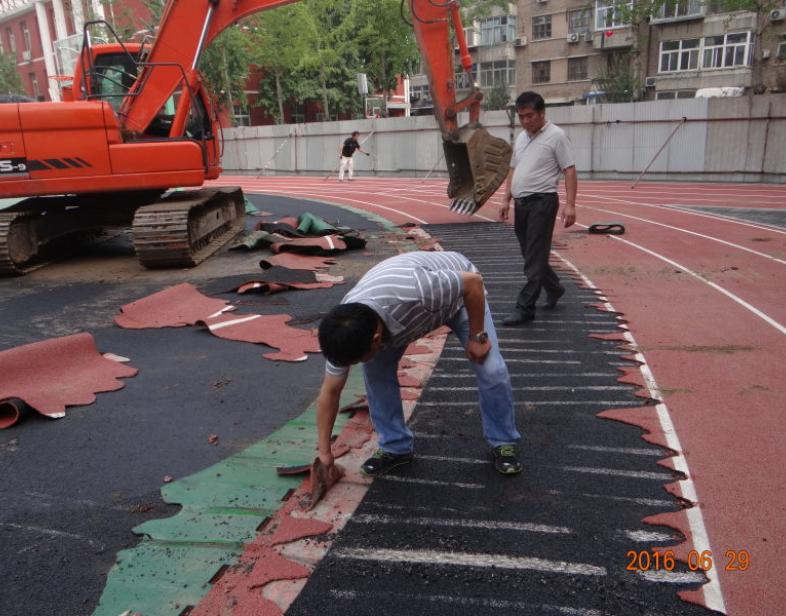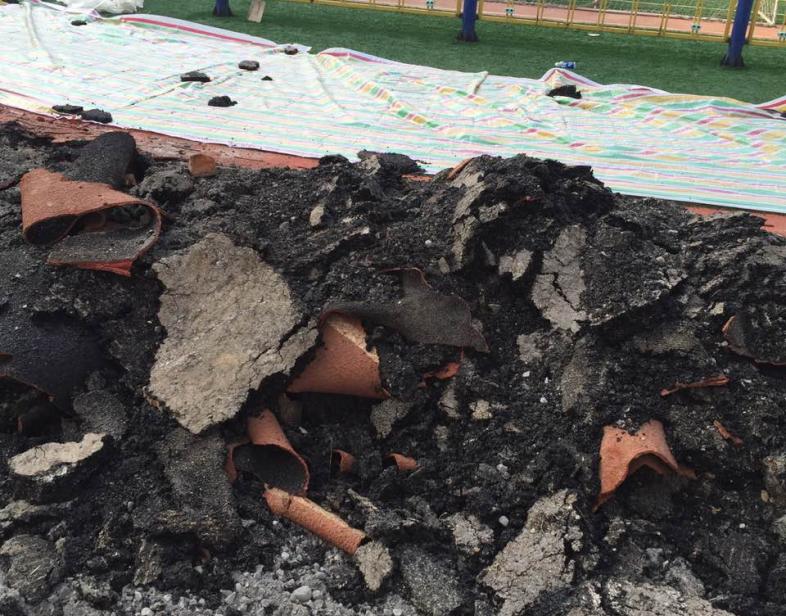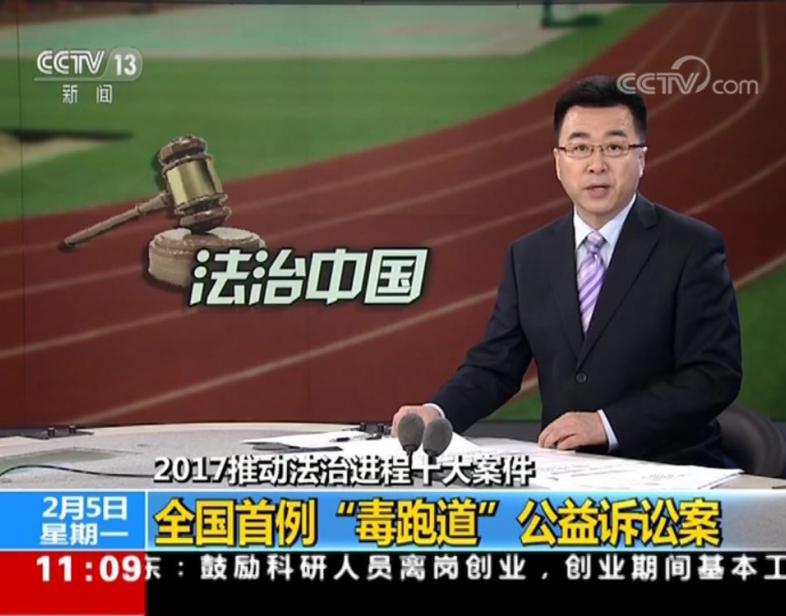An Overview Of Our Solution
In June 2016, China Biodiversity Conservation and Green Development Foundation (CBCGDF) filed a couple of Environmental Public Interest Litigation (EPIL) lawsuits after receiving multiple reports about kids getting sick at their schools. A typical EPIL was against a Beijing-based kindergarten, who had refused to remove the synthetic running tracks suspected of causing the illness despite mounting evidence. One year later, the EPIL was settled through mediation on February 24, 2017, which concluded in a decision for the defendant to remove its synthetic running tracks.
- Population Impacted: potentially 31,400,600 Chinese K-12 studen
- Continent: Asia
Last name
Organization type
Context Analysis
CBCGDF launched an investigation procedure to learn about the situation of the parents and other related personal and collected information on the plastic running tracks of this kindergarten. On March 22, 2016, the Kindergarten and a Trading Co., Ltd. had signed a “Sports Ground Construction Contract”, both parties agreed that the company was responsible for the kindergarten’s plastic engineering project. The construction period is from March 26, 2016 to April 1, 2016. On June 21st, the staff of CBCGDF submitted the litigation materials to the Fourth Intermediate People’s Court of Beijing and filed an environmental public interest litigation (EPIL) against the problematic plastic running tracks user Liu Shikun Wanxiang Xintian Kindergarten. After careful scrutiny, the court had accepted the litigation materials and sent a one-time material correction notice to CBCGDFs staff.
Describe the technical solution you wanted the target audience to adopt
CBCGDF stated in the pleadings that Liu Shikun and Wanxiang Xintian Kindergarten and the Trading Co. were respectively listed as the first and second defendants. As the plaintiff, CBCGDF filed a total of 5 lawsuit requests. On July 21, 2016, the court officially accepted the case. On the next day after the case was accepted, the court sent a notice to the Beijing Environmental Protection Bureau and other departments on the acceptance of the case. Beijing Liu Shikun Wanxiang Xintian Kindergarten agreed to replace its track with grass, to help compensate for pollution inflicted by the track on the surrounding soil and air. According to the court, the replacement process is already underway. The kindergarten also agreed to donate 100,000 RMB to the China Social Assistance Foundation for environmental protection. The mediation was approved by both sides on February 24, 2017. The court issued a formal mediation agreement to both parties on April 10.
Type of intervention
Describe your behavioral intervention
1. To change the belief that using Synthetic materials is better than natural building materials.
2. To change the procedure of environmental standards.
3. It proved that for Children’s health, the right thing is Reversed Burden of Proof.
As needed, please explain the type of intervention in more detail
The toxic synthetic plastic running tracks issue has been plaguing China’s primary and middle schools for many years. In the past decade or so, some poor plastic running tracks have plagued in primary and secondary schools, including kindergartens raging, which has caused great harm to the health of children and adolescents and the soil environment. Every year, the synthetic running tracks will arouse the attention of experts, scholars, parents, and public opinion, and even trigger mass incidents. However, the incident has not been effectively resolved in more than a decade. After the implementation of the new “Environmental Protection Law” in 2015, social organizations may file Environmental Public Interest Litigation (EPIL). In 2016, CBCGDF received complaints from some parents that Beijing Liu Shikun Wanxiang Xintian Kindergarten ‘s newly installed plastic running tracks and artificial playground had irritating smells, causing multiple children to have physical discomfort. They hoped that CBCGDF would file an EPIL in accordance with the law and maintain social public interest.
Describe your implementation
The successful completion of the “toxic running tracks” public interest litigation after court mediation was a happy result and a more successful EPIL case. The plaintiff CBCGDF’s lawsuit request in this case fully complies with the laws and regulations of the public interest litigation, which reflects CBCGDF’s commitment to public welfare. After the mediation of the case, it also affected other related units, and also dismantled similar facilities. It can be seen that the result of this case has a great influence.
External connections
On the next day after the case was accepted, the court sent a notice to the Beijing Environmental Protection Bureau and other departments on the acceptance of the case.
The case was quickly promoted. First of all, the kindergarten expressed a high degree of cooperation. “Not only were the running tracks involved in the kindergarten was involved being removed, but also the plastic tracks of eight kindergartens under in China were all dismantled and the lawns were replaced.” The Environmental Protection Department also made a reply to inform the city's primary and secondary schools and kindergartens to pay attention to students ' physical and mental health and safety, to stop the use of plastic running tracks with problems, to promote the development of plastic playground construction standards.
Who adopted the desired behaviors and to what degree?
The “toxic synthetic running tracks” incident effectively solved the issue on the campus that synthetic plastic running tracks affected children's health and caused pollution to the atmosphere and soil environment. The introduction of this EPIL case not only effectively resolved the social contradictions and unstable factors caused thereby, but also promoted the solution of the toxic tracks that has existed for many years. The case was successfully selected as the “Top 10 Public Interest Litigation in China in 2016”, “Top Ten Cases in Promoting the Rule of Law in 2017” and “the ten largest civil administrative cases” in the 2017 by the People’s Court.
How did you impact natural resource use and greenhouse gas emissions?
This case resolved the dispute through mediation. It has caused widespread concern in society and the attention of relevant departments. Therefore, an important achievement is that by promoting the reduction of the use of synthetic plastic tracks, the environment and the atmosphere have been effectively protected. How to use Environmental Law to safeguard Children’s health seriously threatened by Climate Change and plastic pollution? CBCGDF provided an innovation approach towards the problem, as well as brought a turning point to the Country’s general practice of encouraging synthetic materials use. Climate Change bring health concerns to China’s school children due to irresponsible building of synthetic playgrounds. Synthetic school playgrounds in hot summer seasons not only bring soil and air pollution, but also often cause serious symptoms or even death to children.
What were some of the resulting co-benefits?
- The law-based approach effectively safeguarded the health of millions of Chinese students, reduced soil and air pollution;
- It changed the way of decision making. Previously, China’s National Standards with regard to synthetic running tracks were SOLELY developed by chemical manufacturers; this milestone EPIL closed the loophole and promoted all-stakeholders’ participation in making National Standards;
- It stopped the trend of using synthetic plastics as standard campus-construction materials. Afterwards, China’s Ministry of Education issued a new national policy to encourage Natural-based Solution towards school infrastructure construction.
- China’s educational system no longer demands building synthetic running tracks or playgrounds as a prerequisite in qualification procedures;
- It turned out to be a successful bottom-up breakthrough towards China’s environmental governance;
- Population impacted: Directly, it impacted at least 120 school children who were confirmed sickened in 2016’s summer in Beijing alone; Indirectly, it impacted potentially another 31,400,600 Chinese K-12 students who’s subjected to toxic pollution brought by poisonous school playgrounds or running tracks.
Sustainability
One of this EPIL case’s features is it is responsible for the social responsibility through charitable donations. It enables public welfare donations, more social responsibility payments, and punitive payments to have a special way to play a greater public benefit for the overall environmental governance of society. The function enriches the way to assume environmental responsibility in public interest litigation.
Return on investment
The total investment of our staff of this case is about 180,000 RMB. The corporate responsibility for the development of the society is important. The plastic tracks meet the national standards but still pose a danger to the health of students and the environment. Therefore, companies must not only be responsible for profits, but also be responsible for the environment and undertake social responsibilities. It created a new precedent for environmental participants, allowing the public to rely on legal weapons to participate in the promotion of change according to law. The construction is conducive to the early realization of the construction of the human destiny community. The value of its economic interests is endless.
How could we successfully replicate this solution elsewhere?
Through mediation, a number of kindergartens were promoted to dismantle plastic runways, solving several cases in one case, lowering litigation costs, protecting the environment in a timely manner, and protecting the rights of minors. The content was comprehensive, timely, and in place. Through the mediation, the sources of pollution can be completely and promptly dismantled and restored to the original state of the ecological environment. There are special channels for public welfare donations, taking more social responsibility payments, and punitive payments, and fulfilling greater public welfare functions for the overall environmental governance of the society. NGOs continue to gain experience, as well as confidence, and technical and financial resources to bring to cases.
